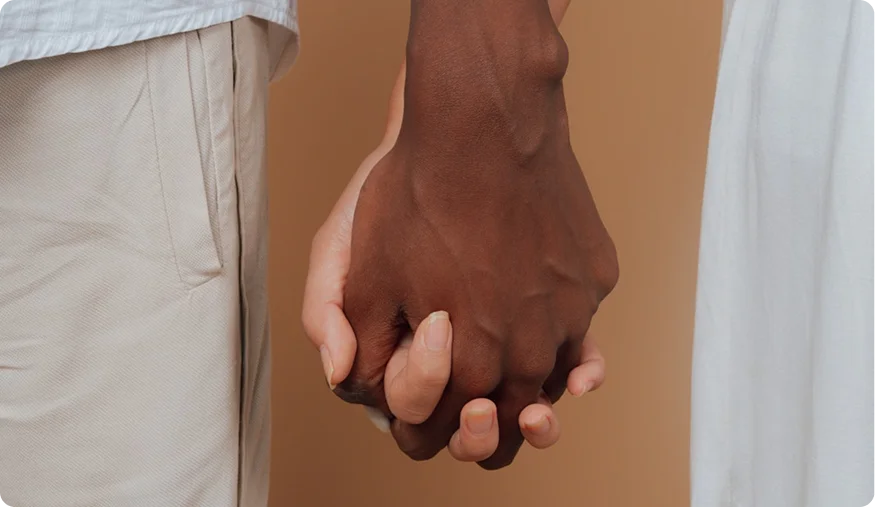Home / Substance Use Disorder / Alcohol
Alcohol Addiction Treatment & Rehab in CO
When drinking becomes hard to manage, reaching out can be the turning point. At Drift Behavioral Health in Colorado Springs, our outpatient alcohol rehab programs help you take back control, safely and on your terms.

What Is Alcohol Use Disorder?
Alcohol Use Disorder (AUD), also known as alcohol addiction or alcoholism, is a medical condition that affects how the brain works and how someone behaves. It involves a pattern of drinking that causes stress, health problems, or makes it hard to keep up with daily life.
Many people with AUD start drinking to ease stress or block out pain. Over time, drinking turns into a habit that’s hard to break. At Drift, we know recovery isn’t a straight line, but we’ll walk it with you.

Alcohol Use Disorder DSM-5
The DSM-5 lists AUD symptoms that occur over 12 months. A diagnosis is made when two or more of the following are present:
- Drinking more or longer than intended
- Wanting to cut down but being unable to
- Spending a lot of time drinking or recovering
- Cravings or strong urges to drink
- Neglecting responsibilities due to drinking
- Continuing to drink despite social or relationship problems
- Giving up important activities because of alcohol
- Drinking even when it causes danger or harm
- Continuing despite mental or physical health effects
- Needing more alcohol to feel the same effect
- Experiencing withdrawal when not drinking
What Are the Signs of Alcohol Addiction?
Alcohol addiction doesn’t always look the same. Some signs are easy to spot, while others develop slowly. Here’s what to watch for:
Physical Signs
- Weight changes, poor sleep, and chronic fatigue
- Nausea, sweating, or shaking when not drinking
- Increased tolerance (needing more to feel the same effect)
- Mood swings, irritability, or depression
- Anxiety when not drinking or when trying to stop
- Feeling ashamed, guilty, or secretive about drinking
- Missing work, school, or important events
- Drinking in the morning or hiding alcohol
- Trouble stopping after one or two drinks
Alcohol Withdrawal Symptoms
Withdrawal happens when your body is dependent on alcohol and you suddenly stop. It can be dangerous without proper support. Here are some of the more common symptoms, listed by severity:
How Long Does Alcohol Withdrawal Last?
Withdrawal usually starts within 6–12 hours, peaks around 48–72 hours, and eases within a week. Depending on the person and the specifics of their condition, this timeline can vary. Getting medical support makes detox safer and less overwhelming.
Mild Symptoms
- Headaches, nausea, and sweating
- Restlessness, shaking, and irritability
- Difficulty sleeping or concentrating
Moderate Symptoms
- Fast heart rate and increased blood pressure
- Confusion or heightened anxiety
- Vomiting and trembling
Severe Symptoms
- Hallucinations or delusions
- Seizures or disorientation
- Delirium tremens (DTs), which can be life-threatening
How Long Does Alcohol Withdrawal Last?
Withdrawal usually starts within 6–12 hours, peaks around 48–72 hours, and eases within a week. Depending on the person and the specifics of their condition, this timeline can vary. Getting medical support makes detox safer and less overwhelming.
The Effects of Long-Term Alcohol Abuse
The longer alcohol is in your system, the more it wears you down. Some effects can be reversed; others may need long-term care.
- Brain: Memory loss, poor coordination, mood disorders
- Liver: Fatty liver disease, hepatitis, or cirrhosis
- Heart: High blood pressure, irregular heartbeat, stroke risk
- Mental Health: Depression, anxiety, and suicidal thoughts
- Relationships: Strained trust, conflict, or isolation
- Work and School: Missed deadlines, job loss, or falling behind
Alcohol Addiction Treatment at Drift Behavioral Health
In Colorado Springs, our outpatient alcohol rehab fits around your schedule. Whether it’s daytime or evening sessions, we make it easier to stick with care and keep your life moving forward.
We offer:

Join peer-led meetings and discussion groups if you find strength in community
Includes Suboxone, Sublocade, Vivitrol, and other medications
Cognitive-behavioral therapy, dialectical behavior therapy, individual and group sessions
Integrated support for substance use and mental health conditions
Here’s Why You’re in Good Hands
At our alcohol treatment center in Colorado Springs, we offer care that’s built on trust, compassion, and proven methods.
- Personalized care with a focus on dignity and privacy
- Holistic and evidence-based treatment plans
- Experienced, compassionate clinical team
- Comfortable, welcoming environment built for healing
Ongoing Support for Alcohol Recovery
Getting sober is the beginning; staying sober takes ongoing support. At Drift, we help you stay grounded throughout your recovery, building a plan for what comes next.
Aftercare Planning
We’ll help you transition into therapy, sober living, or community care
Relapse Prevention
Learn coping skills and how to respond to triggering situations around you
Alumni and Peer Support
Join support groups, mentorship opportunities, and recovery-focused events
Recovery starts with a single step, and we’re here to take it with you. Whether you’re ready to enroll or just need someone to talk to, call us today for a same-day assessment.
FAQs
How long does alcohol withdrawal last?
Most symptoms last about 5 to 7 days, with the worst peaking after 2 to 3 days. Some mental health symptoms, like anxiety or depression, could linger longer.
Is alcohol a stimulant?
Alcohol is a depressant. It may feel energizing at first, but it slows down your brain and nervous system.
How long does it take to detox from alcohol?
Alcohol detox usually takes about a week, but it depends on your history and health. A medical team can help you detox safely and comfortably.
Is alcoholism genetic?
There is a genetic component to alcoholism. If addiction runs in your family, you may be at higher risk, but it’s not the only factor.
What is considered an alcoholic?
If drinking causes problems with your health, relationships, work, or daily life, and you feel unable to stop, it may be considered Alcohol Use Disorder.
Does alcohol cause anxiety?
Yes. While it may seem calming at first, alcohol often increases anxiety over time, especially during withdrawal or hangovers.
Latest Resources
Tramadol is often prescribed for pain, but the way it works is more complicated than most people expect. Research shows the benefits are modest, while the risks of side effects
Every October 10th, World Mental Health Day reminds us to care for our emotional well-being. Mental health awareness keeps growing, yet millions of people still face stigma that stops them
If you’re thinking about quitting smoking or just curious about what’s going on inside your body, understanding how long nicotine lingers is important. Reasons can vary, whether you need to
Contact Us
Contact Us
"*" indicates required fields


